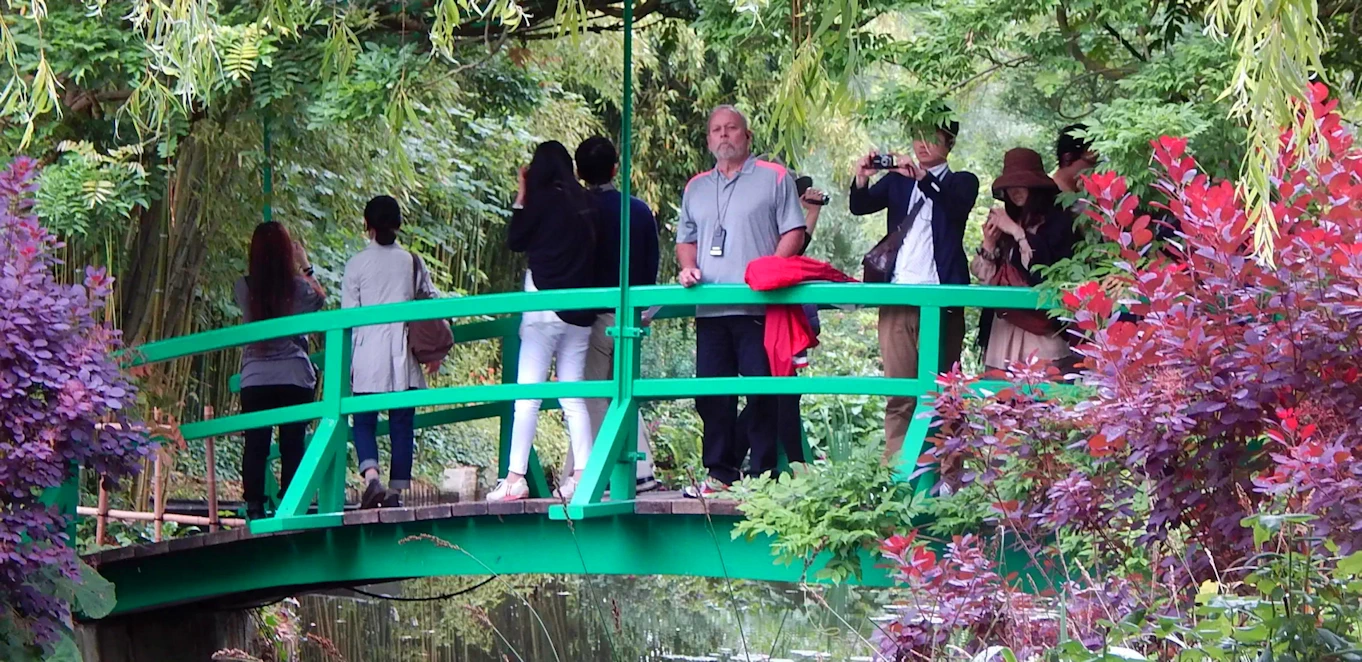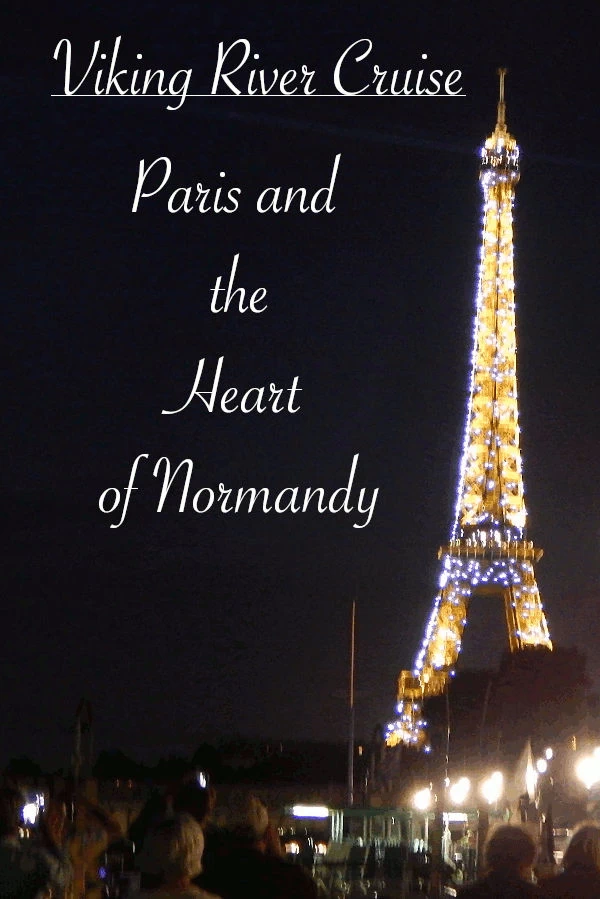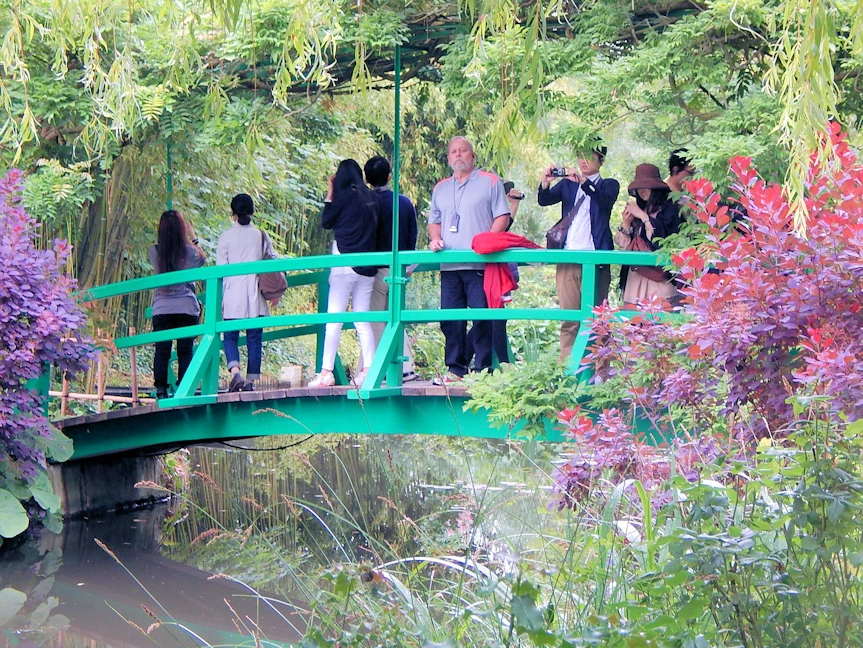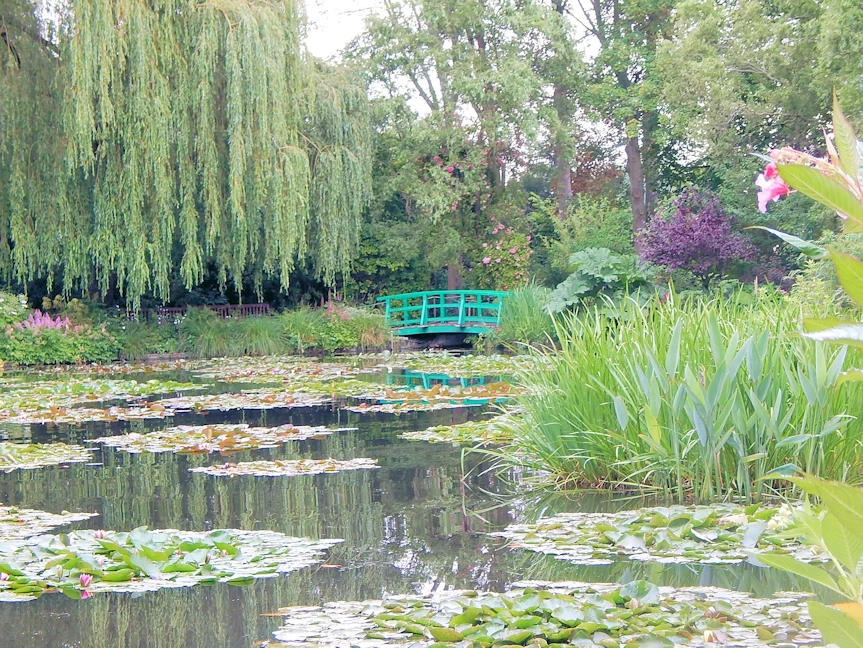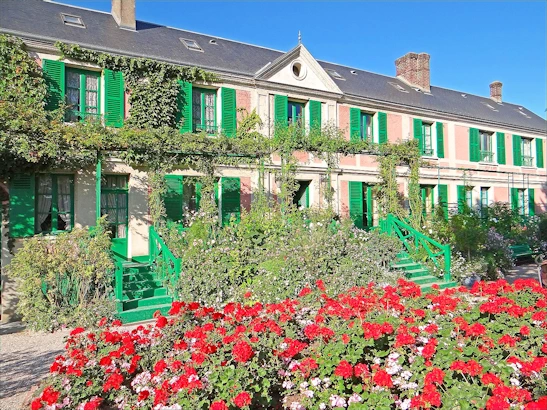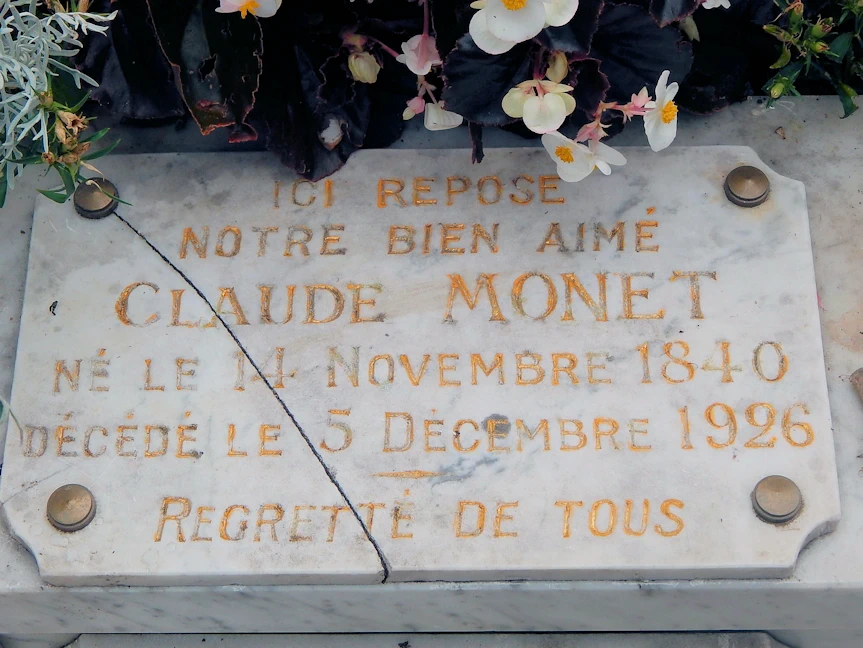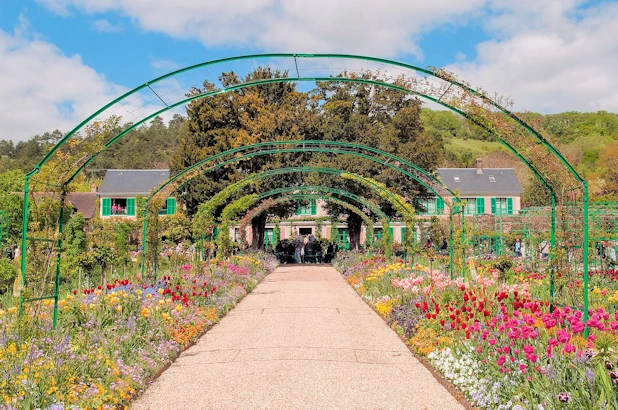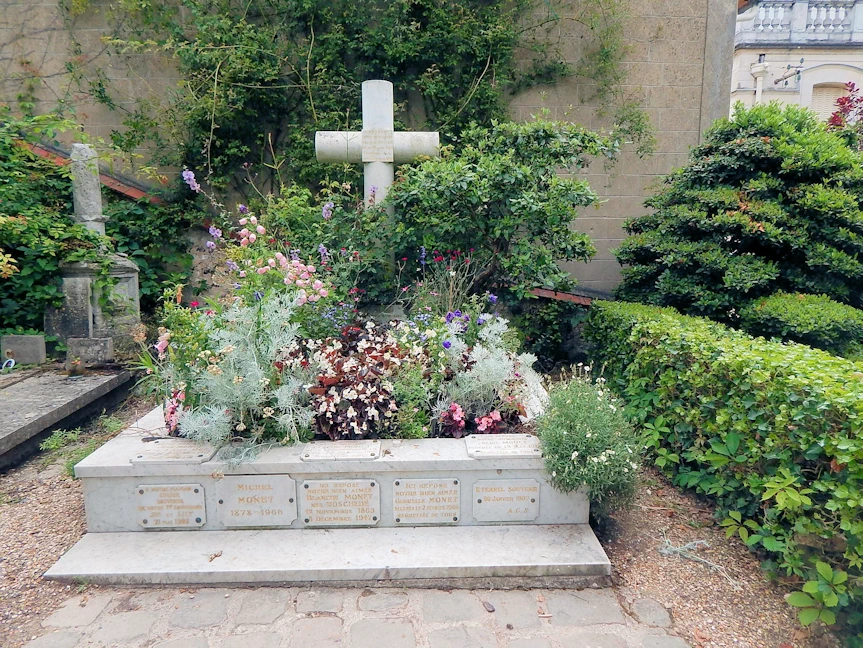Giverny France
Vernon France - A Haven for History Buffs, Art Lovers, and Outdoor Enthusiasts
by Celeste Lipford and Terry Lipford - last updated on 4/7/2025
The Viking Spirit arrived in Vernon at 6AM, and we docked such that the shore excursion to Giverny, could begin at 8:45AM. We were excited to be able to visit Monet\'s home and famous garden!
Monet's Garden, located in the picturesque village of Giverny, France, is a horticultural masterpiece that served as the primary source of inspiration for the renowned impressionist painter Claude Monet. This exquisite garden, which Monet lovingly cultivated for over four decades, is a living work of art. It is divided into two main parts: the Clos Normand, a meticulously landscaped flower garden filled with an array of vibrant blooms, and the Water Garden, famous for its iconic Japanese bridge and water lilies.
Today's Viking bus tour, is to travel by bus from where the ship is docked to Monet's Garden Museum - The museum itself is set within a beautifully preserved building & estate, adding to the overall charm of the experience. It serves as a remarkable bridge between the art world and the natural world, where visitors can immerse themselves in the visual delights that once stirred Monet's creative spirit.
Day Three in Vernon, France Map
After yet another delicious breakfast, everyone proceeded to the tour bus. Viking does a great job of allocating passengers to each tour bus, so as you turn in your cabin key (so they know you are off the ship), they give you a receipt for the keys and also provide you with a "bus number" key, which identifies which tour bus you are assigned to.
The drive from Vernon to Giverny was brief (5.6Km) and once we arrived, there was a short stroll through the village of Giverny to Monet's Garden.
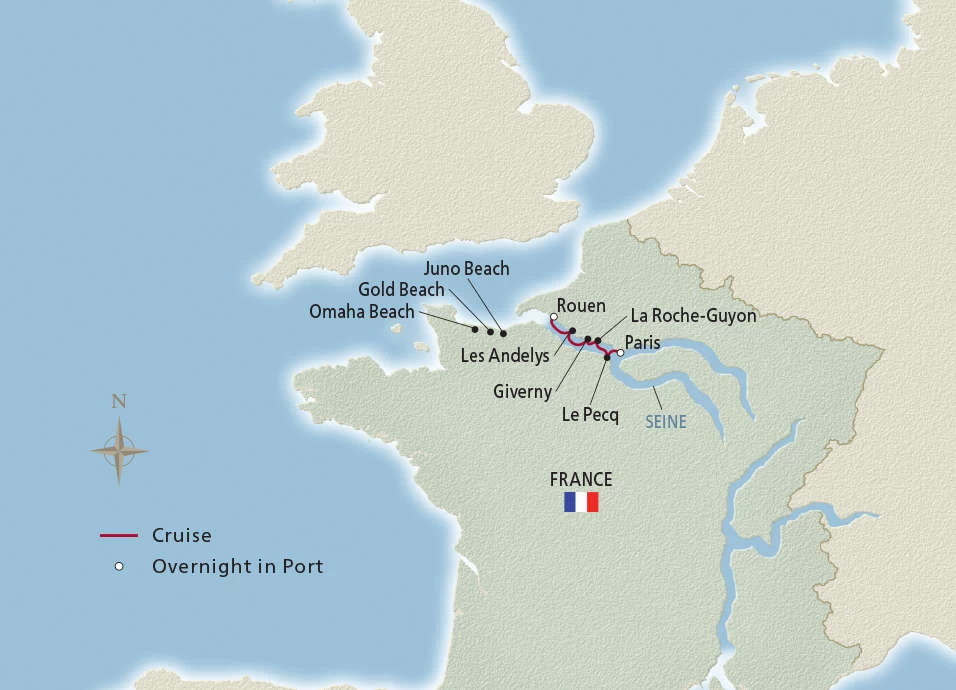
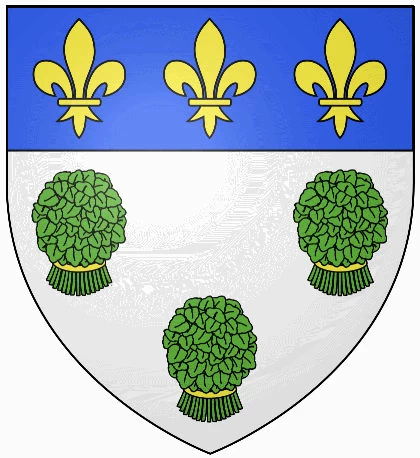
Exploring Monet's Garden Map
The famous "Japanese Bridge" (image # 1 above), also known as the "Water Lily Bridge", which stands elegantly over a meandering pond adorned with water lilies and other aquatic plants - became famous because it appears in Monet's 1899 painting “The Japanese Bridge”. The bridge was inspired by by Monet's collection of Japanese prints, which can be viewed in Monet’s house. Monet never visited Japan, even though he obviously had high regard for Japanese works of art.
The bridge serves as a focal point, drawing the viewer's gaze towards the tranquil water surface, where reflections of the bridge, plants, and the sky merge harmoniously. It is a symbol of tranquility, serenity, and the connection between man and nature that Monet cherished and sought to convey through his art.
it is estimated that Monet produced over 250 paintings focused on his water lilies series as a whole, many of which include the iconic Japanese Bridge.
Interesting Facts about Monet's Garden
- There are 66 different species of flowers and trees growing in Monet's Garden.
- There are 31 different flowers growing around Monet's Garden Pond
- Monet's Garden attracts over 750,000 people per year (2023 total).
- Monet painted his water lilies over 250 times.
- Monet's grave (Tombe de Claude Monet) is located near the estate, on the Rue Claude Monet.
- The Claude Monet Foundation in Giverny is responsible for the care & maintenance of Monet's Estate.
- Monet was much more than just a painter, when he was fifteen, Monet was a caricaturist and sold charcoal drawings.
- Monet's Garden is comprised of two components; The Clos Normand located right in front of the house where Monet lived out the remainder of his life. And The Water Garden which can be accessed through an underground passage, and was inspired by sketches of Japanese gardens that Monet collected. It is complete with two ponds fed by the Ru (a stream running into the Epte, which is itself a tributary of the Seine) with the Japanese bridge shaded in wisteria vines and weeping willows, and of course, Monet’s famous water lilies.
More Info for Monet's Estate
- Restaurants near Monet's Estate: Here is a Google Search Results link displaying restaurants.
- Accommodations near Monet's Estate: Here is a Google Search Results link displaying accommodations.
- Monet's Estate Google Images: Here is a link to Google Images set.
- Our Monet's Estate Images: Here is a link to our Image Gallery.
- Monet's Estate Wikipedia Article: Here is a link to view that article.
- When did Monet purchase the Estate? In 1883, Monet’s family moved to Giverny and became renters of that property. In November 1890, Monet purchased the Estate and started the famous garden that still stands at his home today. In 1893, Monet bought extra land and diverted water from the Seine River to create his water garden. His neighbors, however, were cattle farmers and were afraid that his new aquatic plants would poison the water and kill their animals. The neighbors complained to the local authorities, who told Monet to remove the plants - but Monet ignored the demand.
- How many paintings did Monet create? Over 2,000 of Monet's paintings exist today, however, Monet was known for destroying his own work when he was dissatisfied with paintings or angry - he is thought to have destroyed up to 500 of his own paintings.
- Was Monet a hard working or a casual Artist? Monet often painted without a break for up to 14 hours a day and in all kinds of weather, no matter how extreme.
- What is the best time of day to visit Monet's garden? We were there on a Viking River Cruise tour, and the bus arrived mid-morning and the grounds were already full of visitors. It is best to arrive at the estate as early as possible, both from a parking and crowds perspective.
- Are there parking lots near the Estate? There is a large car park on the side of the D5, in front of the Fondation Claude Monet, and a smaller one just in front of the entrance door, in the village, rue Claude Monet. You could also park in the car park of the Museum of Impressionisms in Giverny on the D5. Note that the estate is 7 kilometers from the Giverny Train Station, and there are taxis and a shuttle bus that you could utilize.
- Can entrance tickets for Monet's Garden be obtained online? Yes, go to this page to obtain your tickets.
- Is it suitable for children and strollers? Yes, the gardens are family-friendly. Paths are gravel and stone, so strollers are manageable, but may require extra effort on uneven ground.
- Can I take photos in the gardens and house? Yes, photography is allowed, but tripods and drones are not. The gardens are very photogenic, so plan extra time if you love taking pictures.
- What is the best way to get to Monet's Garden? The Estate is 74 kilometers from Paris, so the answer would be that it is up to you; Train, Car or Boat, all can provide you with transporation. The train station is 7 kilometers from the Estate, so you would need to find the shuttle bus after your arrival. Train service (via SNCF network) is available from all major French cities (Paris, Rouen or Le Havre). Parking in Giverny is free, and there are 3 parking lots within walking distance of the Estate. Please note further that Giverny, a small village with barely more than 500 residents, does not have direct train service from Paris, but you can take a train from Paris's Gare Saint-Lazare to Vernon, a somewhat larger town located only 3 miles from Giverny.
- How to get to Monet's Garden by boat? A number of River Cruise Companies offer cruises. Here is a list of companies that currently offer excursions to Monet's Garden.
- Are there Day-trip Tours from Paris to Monet's Garden? Yes, take a look at Viator's list of tours. Or take a look at what "Get Your Guide" offers as well.
- Google Reviews for Fondation Monet in Giverny France
The following list contains links to all of our other French Destinations & Information Pages, click any link to go to that page.
Note: All images featured on this page are the exclusive property of Just Traveling Thru, LLC, unless otherwise stated. When images from external sources are used, full credit is given to the original creator, along with a link to the specified license or usage terms. We are committed to respecting copyright and intellectual property rights, ensuring that all third-party images are properly attributed. If you have any questions regarding image ownership or usage rights, please feel free to contact us.
To review any of our content, make suggestions and/or comments, please click the "About" menu link at the top of this page. You will find our "Contact Us" link on that drop-down menu.

